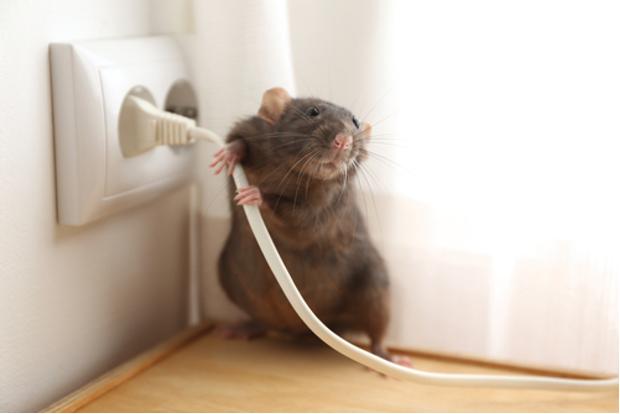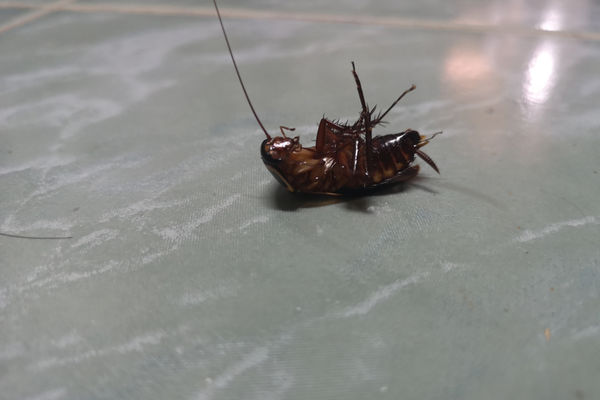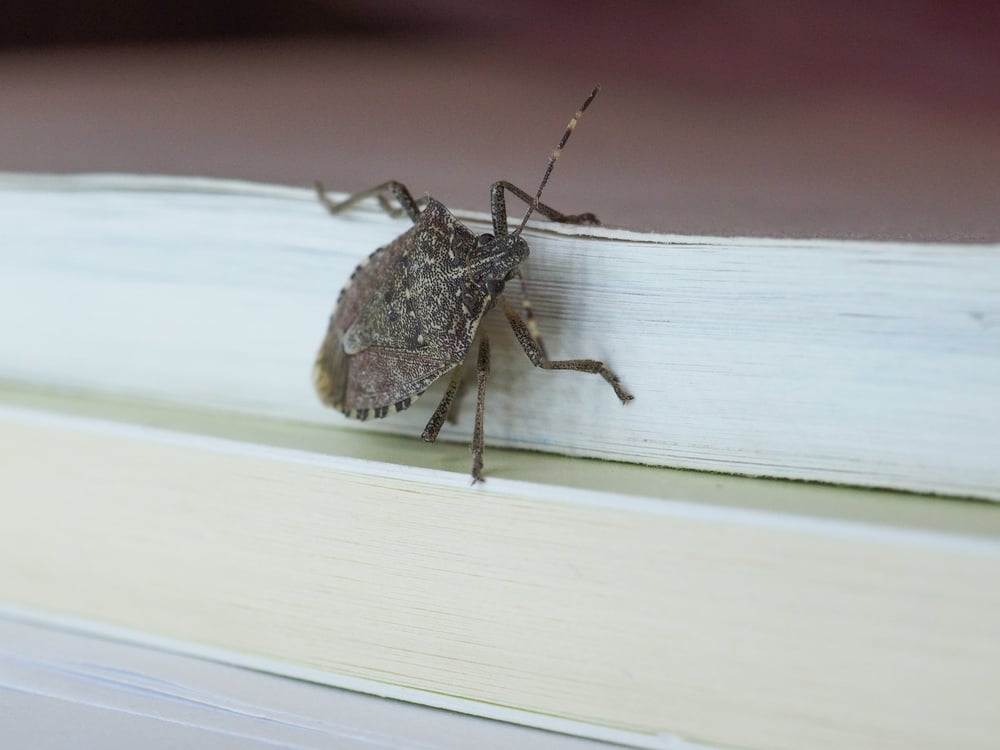Everyone knows pests are prevalent in the spring and summer. However, people often forget about winter pests and the need for pest-proofing even when temperatures drop. If you’re hoping to have a pest-free holiday season, follow our tips below:
Do You Need Pest Control in Winter?
Yes! Winter pest control is key in keeping your home pest-free all year long. Pests remain active even in cold temperatures. Plus, it’s important to use preventative pest control services, instead of reacting to an ant or rodent infestation that’s already present in the warmer months. Here are a few reasons to get pest control this winter:
- Your house is the perfect winter home for termites, carpenter ants, cockroaches, and many more. It provides warmth, moisture, food, and shelter. All things pests need to survive.
- Attics and basements are often shelter for wasps and spiders.
- In the winter, rodents scurry to find a warm place to stay dry and well-fed. Your house is the perfect spot.
- A professional pest control company, like Plunkett’s, inspects and identifies any damage to your home to ensure pests cannot sneak in.
- Plunkett’s will set your home up for success in the winter as well as prevent any future infestations in the spring and summer.
What Pests are Active in the Winter?
During the winter months, when the outside environment becomes harsh and inhospitable, many pests seek refuge in our homes from the cold weather. Here's a more detailed breakdown of some common winter pests: During the winter months, when the outside environment becomes harsh and inhospitable, many pests seek refuge in our homes from the cold weather. Here's a more detailed breakdown of some common winter pests:
Mice & Rats
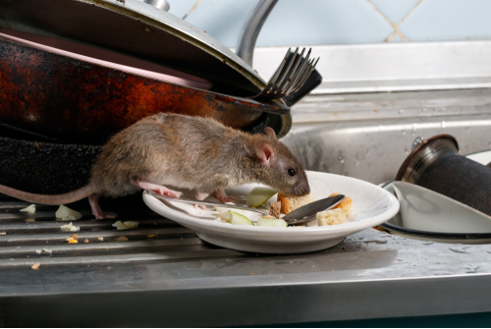
- Why They're a Problem: Rodents can be more than just a nuisance. They can chew through wires, leading to electrical fires, and contaminate food sources with their hair, droppings, and urine.
- Entry Points: These critters often find entry points into homes through gaps in siding, eaves, and around pipes or vents. They can squeeze through very small openings, making it essential to seal up even the smallest cracks and gaps.
- Signs: You might hear scurrying noises in the walls or ceilings, find droppings or torn food packages, or notice shredded paper, which they use to make nests.
Ants
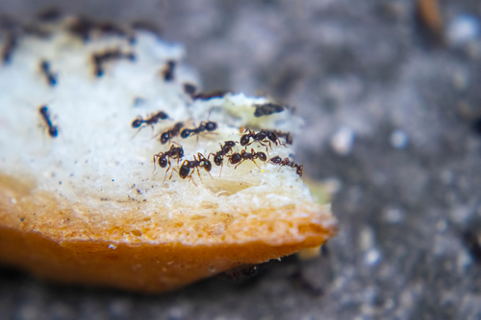
- Why They're a Problem: While many ants go dormant in winter, there are several species of ants that can remain active if they find a warm spot. They can damage wooden structures by burrowing into them to create their nests.
- Signs: Spotting live ants in colder months is a big red flag. Other signs include piles of wood shavings or sand piles or a faint rustling sound inside the walls.
- Entry Points: Ants can enter homes through foundation cracks, window sills, and even under doors.
If you have ants in your house during the winter, get in touch with a professional pest control company right away.
Boxelder Bugs
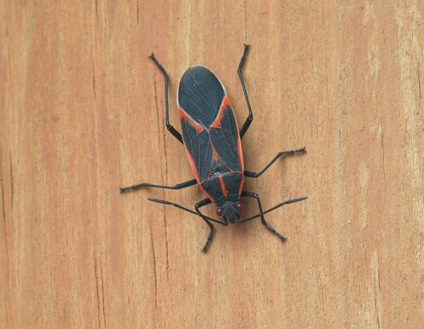
- Why They're a Problem: While boxelder bugs aren't directly harmful to humans, they can be a nuisance when they invade homes in large numbers. Their excrement can stain fabrics and surfaces.
- Entry Points: These bugs can slip into homes through window and door frames, cracks in the siding, or other small openings.
- Signs: The most common sign of a problem with this group of insects is the insects themselves bumbling around indoors as they "wake up" in late winter or early spring.
Along with the pests above, homeowners will often see spiders, cockroaches, Asian lady beetles, and cluster flies during the winter months.
3 Tips to Pest Proof Your Home for Winter
Here’s how to have a pest-free winter:
.png?r=pVvrqg+67WI=)
1. Clean Up Your Kitchen
- Food Management: Store all food items, including those for pets, in sealed, airtight containers. This denies pests a food source and discourages an infestation.
- Dish Hygiene: Never leave dirty dishes in the sink overnight. Pests, especially roaches and ants, are attracted to food remnants.
- Deep Cleaning: Regularly clean hard-to-reach spots such as beneath appliances where food residues can build up.
- Garbage Maintenance: Regularly empty your trash bins, ensuring they have tight-sealing lids, and occasionally clean them to prevent odors and food residues that attract pests.
2. Repair Damages (Even the Small Stuff)
- Windows and Doors: Regularly inspect and re-caulk windows and doors. If light penetrates through a gap, it's large enough for pests to infiltrate.
- Screens and Windows:/b>Ensure that screens are intact. Consider using storm windows during colder months for better insulation and an added layer of protection against pests.
- Door Barriers: Fit external doors with aluminum door sweeps. They form an effective barrier against pests and prevent cold drafts.
- Plumbing Maintenance: Address any leaky faucets immediately. Stagnant water attracts pests and can lead to mold. Inspect your home for damp spots, especially in basements and under sinks. Ensure areas are dry and well-aerated to deter moisture-loving pests.
3. Remove Clutter
- Organize and Store: Excess clutter, especially during festive seasons, can provide hiding spots for pests. Ensure that your spaces, especially storage areas, are neat and organized.
- Avoid Cardboard: Cardboard is particularly inviting for pests such as roaches and silverfish. If storing items for extended periods, opt for plastic containers with tight-sealing lids.
- Regular Vacuuming: Vacuum your home frequently, focusing on areas where clutter accumulates. This not only maintains cleanliness but can also remove pests and their food sources.
4. Exterior Maintenance
- Vegetation: Keep shrubs, trees, and plants trimmed and away from the house to prevent easy access for pests.
- Firewood: If you store firewood, keep it raised and at a distance from your home. Wood attracts various pests, including termites and spiders and rodents.
- Gutters: Clean gutters regularly to avoid water clogging and debris buildup, both of which can attract pests.
5. Routine Checks
- Deliveries: Examine boxes and parcels before bringing them into your home. They can sometimes harbor pests.
- Pet Care: Ensure pets are free of pests like fleas and ticks and periodically inspect large bags of dry pet food for signs of infestation.
A proactive approach to pest control during winter ensures a comfortable, pest-free environment. Should you notice any signs of infestations, don't hesitate to reach out.
Don’t Let Pests Ruin Your Winter Wonderland—Call Plunkett’s!
Plunkett’s offers year-round pest control services from prevention to control to removal. Ready to get started with your winter pest proofing? Schedule a service with Plunkett’s today!

